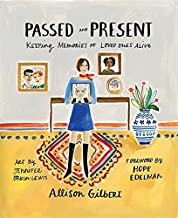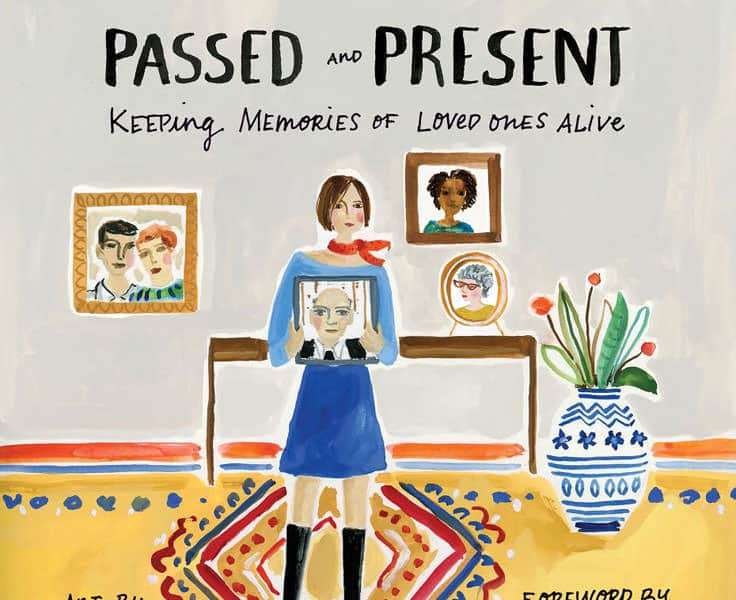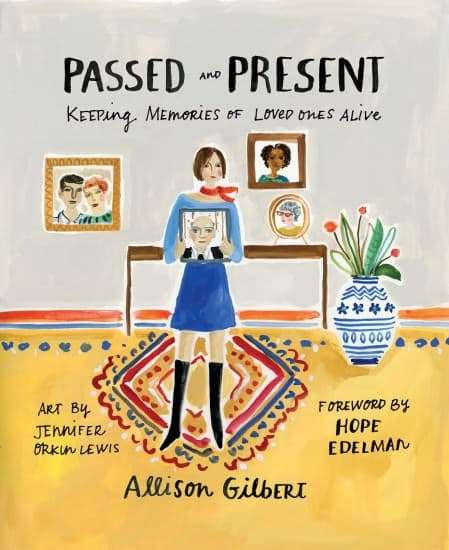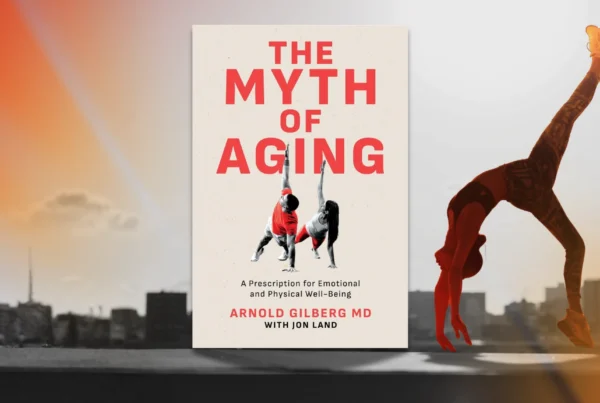Passed and Present: Keeping Memories of Loved Ones Alive by Allison Gilbert
Today, April 12, marks the much-anticipated release day for Allison Gilbert’s Passed and Present: Keeping Memories of Loved Ones Alive (Seal Press, April 12). A how-to manual for learning ways to best remember the ones we’ve lost in life, Passed and Present offers a road map meant to help the reader celebrate lost life rather than mourn it. Below is an excerpt from the newly released book.
When someone we love dies, we usually benefit from being passive recipients of support. Between the rituals of burial and the recitation of certain prayers, between the wakes and shiva calls, the bereaved, and those who console them, know their role and take their place. But consider the vacuum that happens later. I’ve never met anyone who’s completely stopped thinking about the person he or she loved; our memories flood in and out and wash over us at anticipated and unexpected times. Yet for the most part, a year after, five years later, fifteen—the outreach that once provided so much comfort is mostly gone. When it comes to keeping the memory of our loved ones alive, that work is up to us.
This book is necessary because remembering is so closely inter- twined with healing. Therese A. Rando, author of the seminal How to Go On Living When Someone You Love Dies and clinical director of The Institute for the Study and Treatment of Loss, argues that a certain amount of looking back is vital to moving forward. She writes, “One of the problems in our society is that people fail to recognize the importance of a continued relationship with the person we have loved and lost. Many think that to deal with the loss you have to forget the person who has died.” Rando lists four processes individuals must successfully navigate in order to be considered fully resolved in their grief. “Keeping your loved one ‘alive’” is one of them.
Honoring past relationships has proven to have such significant restorative power that noted grief expert J. William Worden developed an entire bereavement-recovery theory about it. This concept, which is now viewed by many as the standard for grief counselors and therapists, is explored in his popular reference guide for professionals, Grief Counseling and Grief Therapy: A Handbook for the Mental Health Practitioner. In it, Worden coins the term “tasks of mourning.” This concept not only includes remembering as a mandatory tenet, but also underscores the obligation of mourners to take control of the process of remembering. The mourner “needs to take action,” he explains.
When I sat down with Worden for an interview in his home in Laguna Niguel, California, he told me why his “tasks” theory is so important: “Death makes you feel out of control. Being proactive makes you feel stronger. Taking steps to remember leads to empowerment, and feeling empowered is absolutely necessary for living a full, happy, and loving life.”
In the nearly twenty years I’ve been researching and writing about loss, I’ve read many other influential works. I’ve also reviewed dozens of scholarly journal articles. Yet the more I learned, the more frustrated I became. Every source I consulted either didn’t provide any specific guidelines for remembering, or failed to provide enough. Even the landmark book Continuing Bonds: New Understandings of Grief—a work, like Kaplan’s No Voice is Ever Wholly Lost, that upended previous theories about grief, arguing the psychological benefits of staying connected to loved ones— doesn’t fully address concrete strategies for remembering.
Passed and Present fills this remarkable void. To my knowledge it’s the first of its kind. It’s also the book I longed for after my mother and father died, one that would have helped me greatly.
Hundreds of people attended the memorial services for my parents. Both times, in those first awful days and weeks that followed, I never had to look far to tell or hear a story. But a few years after they were gone, opportunities for remembering popped up mostly during the holidays. The same was true over the years when I lost my aunt, uncle, and grandmother.
These experiences were isolating, made worse because I was confronted with so many questions most of my well-meaning friends couldn’t answer. What should I do with all my parents’ belongings—my mother’s jewelry, her scarves, my father’s massive assortment of neck- ties? And how about the nearly endless piles of inherited clutter—the random collections of loose papers, official documents, silverware, dishes, gardening tools, photo albums, VHS tapes, film reels, and 35mm slides? What should I keep? Where do I even start?
For years, I struggled. Not only with my parents’ and other family members’ belongings, but with how to talk about them and when. Outside Thanksgiving and other set occasions, I hesitated to bring them up in conversation. Anecdotes I told my children seemed heavy or forced, and I didn’t want to make my friends uncomfortable. In some respects, because techniques for honoring and celebrating loved ones are seldom discussed, I felt lonelier at that later time than when my parents and other family members died. And now, after comparing my experience with my work with the bereaved, I realize this unspoken reality seems to hold true for many people—whether you’re missing a spouse, friend, sibling, aunt, uncle, parent, or child.
Over time, I came to an important conclusion. Perhaps it should have been evident all along, but it was essential for me to recognize nonetheless: nobody is responsible for keeping my family’s memory alive except me. My brother, stepmother, husband, and cousin are all powerful allies, but for my mother and father and other loved ones to continue enriching my life—and for my children to get to know their relatives—it would be up to me to integrate them slowly into our already full and busy routines.
Loving Allison Gilbert’s Passed and Present so far? Go get a copy today!
Buy this Book!
Amazon





